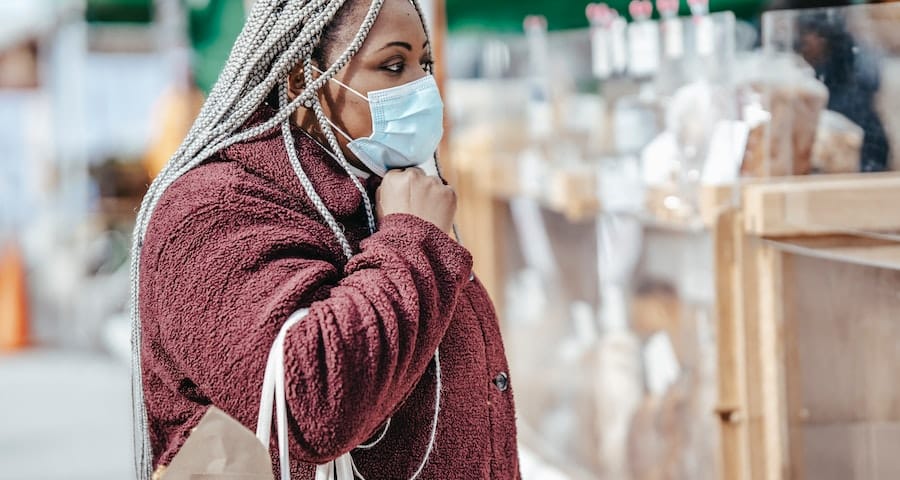Cold sores are a painful and unsightly reality for many people. Roughly 90% of the world’s population is infected with the Herpes Simplex Virus, which causes cold sores. For some people, cold sores are an occasional nuisance. For others, they’re a frequent and recurring problem.
There is no cure for cold sores, but there are things that can be done to prevent them and treat them when they do occur. In this blog post, we’ll explore some strategies for prevention and treatment as well as some coping strategies for living with cold sores day by day.
Causes and Symptoms of Cold Sores
Cold sores are caused by the Herpes Simplex Virus (HSV). This is a highly contagious virus that can be spread through skin-to-skin contact or contact with infected fluids, such as saliva. Once you’re infected with HSV, the virus remains in your body for life. In some people, it lies dormant. But in others, it can be reactivated by stress, illness, sunlight, or other triggers.
When a cold sore is activated, you may first notice a tingling, itching, or burning sensation around your mouth. Then, small red bumps will appear and quickly turn into blisters. The blisters will eventually burst and form a scab. Cold sores usually heal within two to four weeks without treatment.
However, some people experience frequent or severe outbreaks. In these cases, medication may be necessary to help manage symptoms and prevent future outbreaks.
Prevention and Treatment Strategies
Although there is no cure for HSV, there are ways to manage your symptoms and keep cold sores from coming back. Some things you can do to prevent cold sores include:
Identifying Triggers and Avoiding Them
Everyone’s experience with HSV is different. Some people get cold sores when they’re sick, while others have them when they’re stressed out or in sunlight. Keep track of when you get cold sores and what might have caused them. Once you’ve identified your triggers, try to avoid them.
Applying Topical or Oral Medications
There are several over-the-counter treatments that can help speed up the healing process and reduce pain and itching. Some people find that topical creams or ointments work best, while others prefer oral medications. Talk to your doctor about which option might be right for you.
Establishing a Good Hygiene Routine
Good hygiene is important for preventing the spread of HSV and keeping cold sores clean, so they can heal quickly. Wash your hands frequently, especially if you have a cold sore or are dealing with someone who does. Avoid sharing utensils, towels, or other personal items with someone who has a cold sore. If you have a cold sore, avoid touching it as much as possible to prevent the spread of the virus.
Impact on Daily Life
Having cold sores can be painful and inconvenient. But for some people, the psychological impact is just as debilitating as the physical symptoms. Cold sores can be embarrassing and make people self-conscious about their appearance. This can lead to social withdrawal and isolation. In severe cases, people may even develop depression or anxiety.
Coping Strategies
As cold sores can make you feel self-conscious and embarrassed, it’s important to have coping strategies in place to help you manage your symptoms. Some things you can do include:
Practicing Self-Care
Take time to relax, get enough rest, and eat a healthy diet. Self-care is an important part of managing any chronic condition, and it’s especially important when dealing with cold sores. Emotionally, it’s important to give yourself some grace. Cold sores happen; they’re not your fault. Be kind to yourself during this time.
Talking to a Counselor
Seeking emotional support is an important part of managing cold sores. Talking to a licensed mental health professional can help you process your feelings and develop healthier coping mechanisms.
Using Stress Relief Techniques
Stress can be one of the main triggers for cold sores, so it’s important to find ways to manage your stress levels. Try meditation, yoga, breathing exercises, or other relaxation techniques to help you stay calm.
Seeking Support from Family and Friends
Having a support system is essential for managing any chronic condition. Your family and friends can provide emotional support, help you find the right treatments, and remind you of your worth during difficult times.
Conclusion
Cold sores can be uncomfortable, unpleasant, and inconvenient. But with the appropriate course of treatment and coping techniques in place, you can control your symptoms and avoid recurrences. You can also check our article on Children’s Cold Sores Treatment.
Talk to your doctor about the best treatments for you, and don’t forget to take care of yourself emotionally as well. Knowledge is power, and understanding more about cold sores can help you take control of your health.
We hope that now you have a better understanding of living with cold sores day by day. As always, be safe and healthy!!
